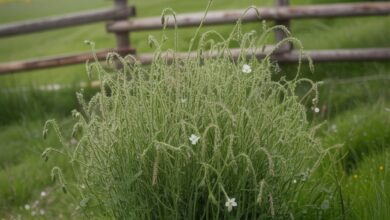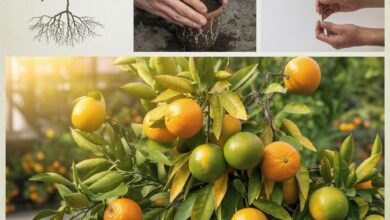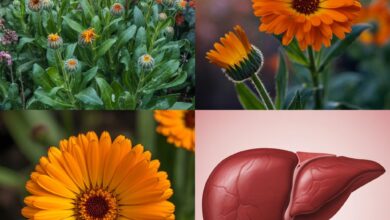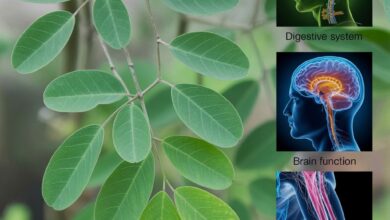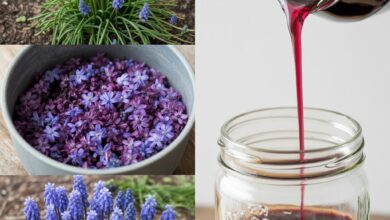Mango Leaf and Clove Tea: A Gentle Herbal Support for Daily Wellness
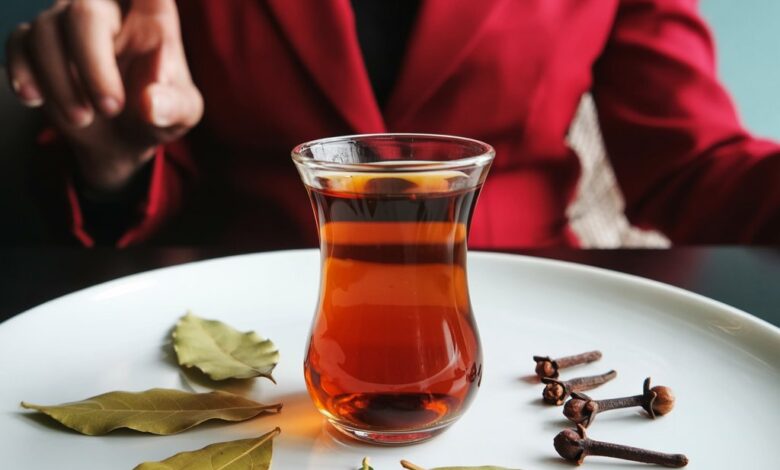
In a quiet kitchen, steam curls upward from a small pot, carrying the earthy aroma of mango leaves and the spicy warmth of cloves. An elderly man sits nearby, wrapped in stillness, sipping from a cup of this herbal infusion. It’s a simple, timeless scene—one that reflects the deep comfort of slowing down and caring for the body with nature’s help.
This tea isn’t a cure or quick fix. It’s a gentle tradition passed through generations—a way to nurture wellness with ingredients from the earth. For those seeking calm, balance, and a mindful daily ritual, this mango leaf and clove blend offers a soothing companion.

Mango Leaves: A Quiet Ally in Traditional Wellness
Mango trees (Mangifera indica) are celebrated for their sweet, juicy fruit, but their leaves have long held value in traditional medicine across parts of Asia and Africa. These leaves are rich in natural compounds like flavonoids and antioxidants, which some believe may help support the body’s resilience and reduce everyday stress.
While scientific research is still catching up, many people use mango leaf tea as a gentle addition to their wellness routines. Light and slightly bitter in flavor, it’s often enjoyed after meals or during seasonal transitions to promote balance and a refreshed feeling.
It’s important to view this tea as supportive, not a replacement for medical care. Think of it as one of many tools in a larger, holistic approach to wellbeing.
Cloves: Aromatic Warmth with a Long History
Cloves (Syzygium aromaticum)—small, fragrant flower buds—have flavored food and medicine for centuries. Known for their warming properties, cloves are often added to herbal blends, especially in cooler months, to comfort the body and support digestion.
One of their key compounds, eugenol, has been studied for its potential benefits in traditional health systems. In home remedies, cloves are occasionally used in teas and rinses as part of efforts to maintain oral health or ease stomach discomfort.
As with mango leaves, cloves aren’t a cure, but they do add depth to this tea—bringing both flavor and a sense of comfort rooted in tradition.
The Ritual: Finding Peace in the Process
Beyond the ingredients, the real magic of this tea may lie in the ritual itself. Selecting the leaves, watching the pot gently simmer, and taking a quiet moment to sip the finished blend can turn an ordinary day into something meaningful.
For older adults especially, this kind of mindful routine offers a moment of stillness—an anchor in a world that often moves too fast. The scent, the warmth, the act of preparing something by hand—it all adds up to a quiet reminder that caring for yourself doesn’t have to be complicated.
How to Make Mango Leaf and Clove Tea
Ingredients:
- 5 to 7 fresh mango leaves, washed thoroughly
- 1 teaspoon whole cloves
- 3 cups clean water
- Optional: a spoonful of honey for sweetness
Instructions:
- Place mango leaves and cloves in a small pot.
- Add water and bring to a boil.
- Reduce heat and let it simmer gently for 10–15 minutes.
- Turn off the heat, cover, and let steep for a few more minutes.
- Strain and serve warm. Add honey if desired.
This tea is often enjoyed first thing in the morning on an empty stomach or in the evening as a calming wind-down. If you’re managing health conditions or taking medications, it’s wise to consult a healthcare provider before introducing new herbs into your routine.

A Natural Way to Support Everyday Wellbeing
While this blend isn’t a medical remedy, it can be a simple part of a healthy lifestyle. Some people enjoy it for its soothing aroma, others for its traditional use in supporting digestion or general comfort. Above all, it offers a way to pause and be present—a moment of care that’s easy to overlook in daily life.
Simplicity and Self-Care in Later Life
As we age, life can become increasingly filled with appointments, medications, and new routines. But wellness doesn’t always require big changes. Sometimes, it’s found in small, consistent acts—like preparing a warm cup of tea.
For seniors especially, this ritual offers a sense of agency and peace. It’s affordable, gentle, and rooted in wisdom passed down through generations. No promises of instant results—just a quiet way to connect with yourself and the natural world.
Conclusion
Mango leaf and clove tea won’t solve everything—but it doesn’t need to. For many, it provides something equally valuable: a calming tradition, a nourishing habit, and a way to support overall well-being without complexity.
Wellness is holistic. It’s built on rest, nutrition, movement, connection, and care—both medical and personal. This tea is one small piece of that picture, a meaningful addition to your daily rhythm.
So go ahead—let the leaves steep, inhale the spicy-sweet aroma, and take a quiet moment for yourself. With every sip, you honor your body, your time, and the healing power of simplicity.
